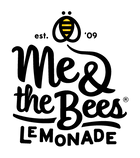Celebrating National Pollinator Week

National Pollinator Week is happening this week, June 21-27. It was created by the Pollinator Partnership to address the decline of pollinator populations worldwide. This educational celebration includes birds, bees, butterflies, bats and beetles.
Bees rely on their colony to take on large tasks and make sure that the goal gets accomplished. We have to be like the bees and give back to our ecosystem to ensure that the pollinators can keep doing their job to keep us happy and healthy.
I try to do my part to help protect and save pollinators. Here is my list of the top ten things I do to help.
1. Planting Bee Friendly Flowers: We are very thankful for all that pollinators do for us. Did you know that we couldn’t live without the cross pollination they provide for most of our food crops? Planting bee friendly flowers including sunflowers, lilacs, poppies and honeysuckle will help bees, especially during the summer.

2. Don’t Spray It! While pests are frustrating, spraying harmful pesticides in your garden could kill pollinators. Try natural alternatives instead, and click here for the most effective solutions with the least harmful effects.

3. Honey, keep it local: Supporting local farmers and gardeners keeps a sustainable agriculture in your city, plus it’s a great way to support small business.

4. Organic Farming: Buying organic fruits and veggies is an easy way to help the pollinators. Toxic chemicals are one of the greatest threats to pollinators, so eating fresh and organic food will help grow the pollinator population! Click HERE to watch my interview with Bryan Ibrafall Wright from @blackurbangardeningsociety on how to star an urban garden.

5. Supporting Science and Research: Education is a key component in keeping pollinators buzzing. Learning about the effects of the environment on bees is super important. My foundation, @Healthy Hive, commissioned research to learn about the impact of CA wildfires on pollinators. Click HERE to see more about the findings.

6. Bee-informed: Educating yourself on pollinators is a great way to give back during pollinator week. My Beelieve Blog and the American Beekeeping Federation have informative articles about the honeybee and other important pollinators.
7. Seed Bombs: Saving bees through seed bombs is fun and easy. Click HERE to download a guide for making your own seed bombs.

8. Shop Smart: Looking for non-toxic products, organic fruits and vegetables and all natural ingredients helps every pollinator to continue doing their job!

9. Buzz Abroad: Studying pollinators is important in understanding how we can help them. I am traveling to the Galapagos Islands to study biodiversity, and I am so excited to learn more about the native Galapagos carpenter bee while I am there.

10. Follow and Share the Buzz: Follow me on social media @mikailasbees to spread the word through videos, stories and facts.

